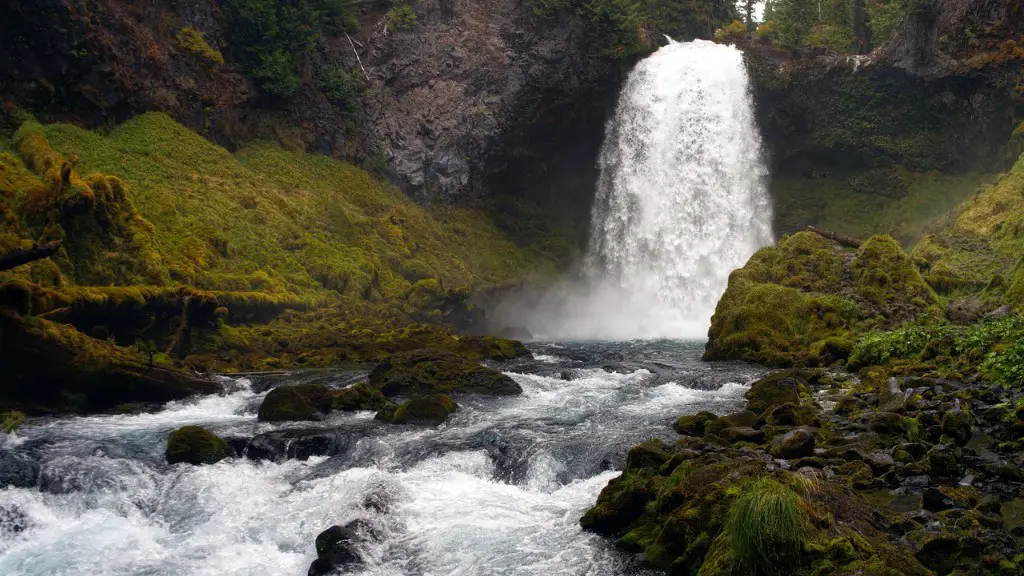The Mississippi River is one of the largest rivers in the US and has over 300 species of fish that call it home. From tiny minnows to huge catfish, the Mississippi River is a great place to explore the diversity of fish that live in our rivers. Each fish species plays an important role in the ecological health of the river, which make them a valuable resource for anglers and scientists alike.
The most common fish that inhabit the Mississippi River include catfish, channel catfish, carp, bass, bluegill, sturgeon, sucker, sunfish, walleye, paddlefish, and others. Catfish are the most abundant and popular fish in the Mississippi, often reaching large sizes and weighing up to fifty pounds. Channel catfish, also common in the Mississippi, are a bit smaller but still reach sizes of twenty pounds in some areas. Bass and bluegill are also popular and commonly sought after species. Smaller fish, like sunfish and suckers, are also present in large numbers.
In addition to native species, the Mississippi is home to numerous non-native, invasive species. These non-native species, such as Asian carp and zebra mussels, are often introduced by anglers and can threaten native fish populations by competing for resources. Asian carp, for example, feed on plankton and consume so much that they can reduce food availability for other species. Weeds, such as hydrilla and Eurasian milfoil, are also invasive species that can affect native fish populations.
The health of the Mississippi River is directly linked to the health of its fish. Pollution is one of the biggest threats to the species, as it can contaminate their habitat and affect their growth and reproduction. Pollution can come from agricultural runoff, industrial waste, and untreated sewage, all of which can negatively impact the health of the fish in the Mississippi. Additionally, changes in water temperature, sedimentation, and stream flow can all have a negative impact.
Conservation is an important part of ensuring the health of the Mississippi River fish. Organizations like the Mississippi Department of Wildlife, Fisheries and Parks as well as local state and federal agencies work to conserve and protect fish and their habitats. Anglers can also help by adhering to regulations, releasing fish properly, and reporting any suspicious activity.
From its vast array of fish to its importance to the ecological system, the Mississippi River is an important resource for anglers and scientists alike. Not only does it provide a great fishing experience, but it also is a valuable source of data that can be used to study and protect the fish and their habitats.
Fishing Regulations
Ensuring the health of fish populations in the Mississippi River is a top priority for conservation and management efforts. To ensure long-term sustainability, anglers must abide by specific regulations. This includes creel limits, size restrictions, closed seasons and catch and release regulations. For example, certain species have a protection status and are protected by regulations such as reduced creel and size limits or complete closures. These regulations are in place to ensure that fish populations remain healthy and viable for the long-term.
These regulations provide important protections for fish species and their habitats. They also help to sustain recreational fishing opportunities for the future. Recreational anglers should be aware of the regulations and understand their importance in protecting the fish and their habitats.
The Mississippi Department of Wildlife, Fisheries and Parks provides regulation information and is available to answer questions. They also have a website that provides anglers with important information such as licence requirements and contact information. Anglers should always follow the regulations and contact their local fisheries management office if they have any questions.
Habitat Protection
Protecting the habitat of fish in the Mississippi River is key to long-term sustainability. This includes protecting the quality of the water and maintaining the health of the riparian buffer along the river. Pollution from agricultural runoff, industrial waste and untreated sewage can all have a negative impact on fish populations. To prevent this, conservation and management efforts focus on reducing and removing pollutants from sources as well as restoring habitats to their natural condition.
These efforts involve the use of best management practices, such as buffer strips and contour farming, to reduce pollution from sources. Conservation and management efforts also include the use of constructed wetlands, which are designed to naturally filter pollutants and improve water quality. These wetlands also provide important habitats for fish and other wildlife. Additionally, aquatic plantings such as native plants and emergent vegetation help to improve water quality and provide habitats for fish.
Anglers can also help by practicing catch and release. This helps to minimize the impact of fishing on fish populations and it also helps to maintain and improve fish habitat. Anglers should also avoid activities that can damage and degrade habitat such as littering or the use of illegal nets. By following fishing and conservation practices, anglers can ensure that fish populations remain healthy and sustainable.
Population Status and Management
The Mississippi Department of Wildlife, Fisheries and Parks conduct annual surveys to determine the population status of various fish species. Surveys are conducted during peak spawning periods and data is used to determine population trends and assess the health of fish populations. This data is then used to formulate conservation and management plans. These plans focus on protecting the health of the fish and their habitats.
The Mississippi Department of Wildlife, Fisheries and Parks also conduct research on specific species of fish to gain a better understanding of their biology and ecology. This research includes population surveys, habitat assessments, and testing for contaminants. This research provides important information on the health of the species, which can help to identify areas of concern and develop strategies for improving population status.
Stay up to date on the latest population surveys, research and management plans by visiting the Mississippi Department of Wildlife, Fisheries and Parks website. This website provides important information on fish species and their habitats in the Mississippi River. It also provides anglers with access to regulations, license requirements and other important information.
Angling Opportunities
The Mississippi River provides anglers with a variety of opportunities to catch a variety of species. From large catfish to small sunfish, anglers can find something to target year round. With its vast array of fish species and diverse habitats, the Mississippi River is home to some of the best angling opportunities in the US.
Anglers should be aware of the regulations in their area and the species that are present in the Mississippi. Knowing what species are present can help anglers target the species that they are looking for. Additionally, anglers should be aware of the size regulations and creel limits for different species. Adhering to these regulations is important for the long-term sustainability of fish populations.
Anglers should also be aware of their own skill level and the different techniques and strategies available to them. As each species is different, anglers should research each species and learn the best techniques to use. Additionally, anglers should take the time to research the areas they will be fishing and plan accordingly.
Angling opportunities in the Mississippi River are plentiful and diverse. With its array of fish species and habitats, the Mississippi River offers anglers the chance to target a variety of species and experience some of the best fishing in the US. Anglers should remember to adhere to regulations and research the species they will be targeting. Doing so can help to insure the long-term sustainability of fish populations in the Mississippi.
Education and Outreach
The Mississippi Department of Wildlife, Fisheries and Parks is committed to educating and informing the public about the importance of fish and their habitats. Through outreach, education and research, they are able to provide the public with information on regulations, conservation and management efforts, population data and angling opportunities.
The Department also provides a variety of conservation and education programs that teach anglers about the importance of conservation, responsible angling practices and habitat protection. These programs are aimed at increasing awareness and understanding of the importance of conservation and the impact that angling and other activities have on fish species and their habitats.
The Department provides a wide range of resources for anglers, including pamphlets, fact sheets, books, and websites. These resources provide anglers with detailed information on regulations, conservation and management efforts and angling opportunities. Additionally, the Department hosts seminars, workshops and other events to provide anglers with updated information on fish populations and angling opportunities.
The Mississippi Department of Wildlife, Fisheries and Parks is dedicated to conservation and education. Through outreach, education and research, they are able to provide anglers with the resources they need to make informed decisions and act responsibly when it comes to the health of fish and their habitats.





